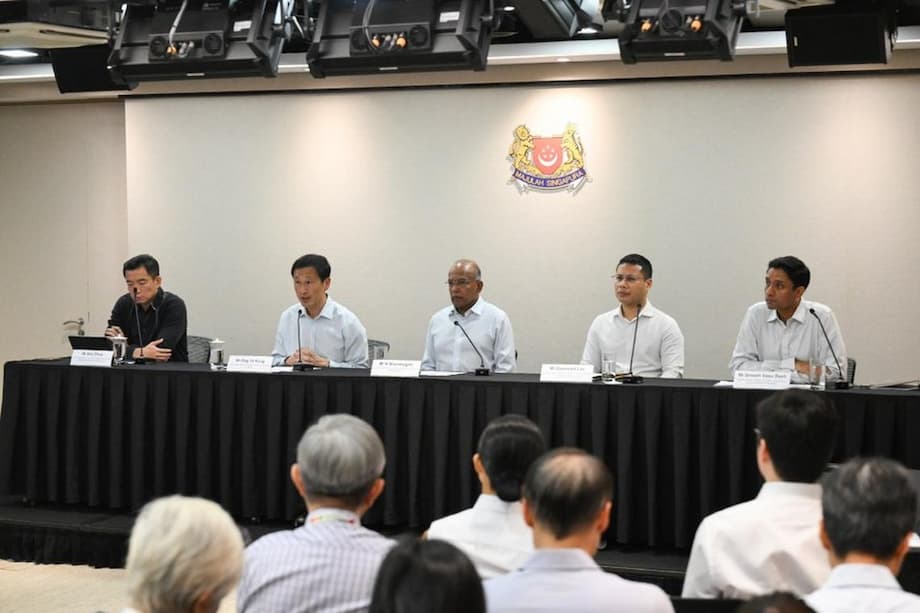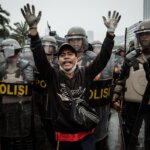Singapore’s New War on Vaping: Why the Crackdown Now?
Singapore has long been known for its uncompromising stance on drugs and public health threats. In 2025, the city-state is doubling down on vaping, introducing sweeping new laws and unprecedented penalties that treat vaping not just as a tobacco issue, but as a serious drug threat. This shift comes amid a surge in cases involving e-vaporisers laced with dangerous synthetic drugs, particularly etomidate, and growing concerns about youth addiction and organised crime. The government’s response is a multi-pronged campaign involving law enforcement, public health, education, and technology, all aimed at eradicating vaping from Singapore’s streets, schools, and borders.
- Singapore’s New War on Vaping: Why the Crackdown Now?
- What Are the New Laws and Penalties?
- Enforcement: A Multi-Agency, High-Tech Operation
- Public Health and Education: Prevention Over Punishment
- The Youth Crisis: Why Are So Many Young People Vaping?
- International and Regional Implications
- Criticism and Debate: Is a Ban the Best Solution?
- In Summary
From Tobacco to Drugs: The Changing Face of Vaping
Vaping was banned in Singapore in 2018, but the problem has evolved. What began as a battle against nicotine addiction has become a fight against drug abuse. In 2025, authorities detected 28 cases of e-cigarettes laced with etomidate in just the first half of the year—nearly triple the number from all of 2024. Etomidate, a powerful anaesthetic intended for medical use, is now being abused via e-vaporisers, known locally as “Kpods.” A random test of 100 seized vapes in July 2025 found that a third contained etomidate, a statistic that alarmed both health officials and the public.
Health Minister Ong Ye Kung explained the urgency:
“Vapes have become a gateway for very serious substance abuse where the devices have become delivery devices for drugs.”
The United Nations Office on Drugs and Crime has also warned that vapes in Southeast Asia increasingly contain not just nicotine, but cannabinoids and synthetic substances, making the threat both local and international.
What Are the New Laws and Penalties?
Effective September 1, 2025, Singapore’s anti-vaping laws have been radically strengthened. The legislative changes target every link in the vaping supply chain—from importers and distributors to users and social media influencers. The most significant changes include:
- Etomidate and analogues (like butomidate and metomidate) are now Class C drugs under the Misuse of Drugs Act, making their possession, use, or distribution a serious criminal offence.
- Suppliers of Kpods (etomidate-laced vapes) face up to 20 years in jail and 15 strokes of the cane. Importers face a minimum of three years in jail and five strokes of the cane, with a maximum of 20 years and 15 strokes.
- First-time abusers under 18 are fined $500; adults are fined $700. Both must undergo up to six months of compulsory rehabilitation. Repeat offenders face mandatory supervision, drug testing, and possible detention in a Drug Rehabilitation Centre.
- Foreigners and tourists are not exempt. They may be fined, deported, and banned from re-entering Singapore for serious offences. Long-term pass holders risk losing their immigration privileges.
- Vaping offences are now scheduled under major crime laws such as the Organised Crime Act and the Corruption, Drug Trafficking and Other Serious Crimes Act, allowing authorities to seize proceeds from vape sales linked to organised crime and to take down online content promoting vaping.
These penalties are among the harshest in the world, reflecting Singapore’s zero-tolerance approach. The government has made it clear that vaping will be treated with the same seriousness as hate speech and the death penalty.
Why Such Severe Measures?
The rationale for these tough laws is twofold: public health and crime prevention. Vaping is no longer seen as a safer alternative to smoking. Instead, it is viewed as a delivery system for dangerous drugs, with severe health consequences. Etomidate, when inhaled, can cause muscle spasms, seizures, confusion, psychosis, and even death. Videos of teenagers behaving erratically after vaping have gone viral, fueling public anxiety and support for the crackdown.
Organised crime syndicates are exploiting the vaping market, targeting youths and using social media influencers to glamorise vaping. The government’s response is to treat e-vaporisers as drug implements, not tobacco harm reduction devices, and to apply the same enforcement tools used against drug traffickers.
Enforcement: A Multi-Agency, High-Tech Operation
Singapore’s crackdown is not just about harsher laws—it’s about enforcement at an unprecedented scale. Several hundred officers from the police, Central Narcotics Bureau, Immigration and Checkpoints Authority, and Ministry of Manpower are now empowered to take action against vape users and syndicates. The Ministry of Defence is also increasing enforcement, with penalties for military personnel ranging from fines to detention and possible discharge.
Authorities are using technology to stay ahead of traffickers. The Health Sciences Authority (HSA) employs AI-powered surveillance to monitor social media for illicit vape sales. The National Environment Agency uses portable drug-testing devices to detect synthetic substances in vape liquids. Roving patrols of trains, bus terminals, and parks allow officials to conduct spot checks and search bags. At Singapore’s borders, checks have been stepped up at land crossings, airports, and other entry points, as most vapes are smuggled in from neighbouring countries like Malaysia and Indonesia.
Singapore’s model is influencing the region. Thailand uses drones with infrared cameras for river patrols against traffickers, while Vietnam and Australia have imposed their own bans or strict regulations on vaping. Compliance service providers are emerging to help manufacturers and retailers navigate this complex landscape.
Public Health and Education: Prevention Over Punishment
While the penalties are severe, Singapore’s approach is not purely punitive. The government is investing heavily in public health campaigns and support services to help people quit vaping—especially young people, who are most at risk.
Nationwide Anti-Vape Campaigns
The Health Promotion Board (HPB) has launched a dark-themed campaign called “Don’t Toy With Your Life,” targeting youth with creative visuals that mimic collectible toys but reveal the gruesome health effects of vaping. The campaign runs across cinemas, public transport, and social media, aiming to counter the glamorisation of vaping and highlight its dangers. The message is clear: vaping is not harmless fun, but a deceptive and dangerous habit.
Schools and institutes of higher learning are rolling out anti-vaping education programmes, using nicotine test kits, metal detectors, and even vape detectors to catch offenders. Students caught vaping face counselling, conduct grade adjustments, suspension, and loss of scholarships or leadership opportunities. Parents are encouraged to have open conversations with their children, using resources provided by the HPB and other agencies.
Support for Quitting: Rehabilitation, Not Just Reprimand
Singapore’s QuitLine and “I Quit” Programme offer support for those seeking to quit vaping. Organisations like WE CARE Community Services, the Singapore Anti-Narcotics Association, and the Institute of Mental Health provide counselling, addiction management, and recovery support. Importantly, those who voluntarily seek help or dispose of their devices will not face penalties or have an offence record.
To make quitting easier, the government has placed vape disposal bins at 24 locations across the country, including community clubs and universities. These bins are locked and monitored to prevent tampering, and all surrendered vapes are incinerated under supervision. The HSA assures the public that identities will not be traced, and the locations of bins do not reflect usage rates in those areas.
The Youth Crisis: Why Are So Many Young People Vaping?
One of the most alarming trends is the rise in youth vaping. About a third of vapers in Singapore are under 18, and more than half are under 30. The Ministry of Education reported that about 3,100 students in schools and 800 students in higher learning institutes were caught vaping annually from 2022 to 2024. Peer pressure, social media influence, and the perception that vaping is trendy or harmless are major drivers.
Health officials warn that this perception is dangerously outdated. Vapes are now being used to deliver not just nicotine, but potent psychoactive substances. The consequences are severe: addiction, mental health issues, academic decline, and even death. The government’s message to young people is unequivocal:
“There is no favourable outcome when you put a vaping device into your mouth. Each time you inhale, you are blowing your life away.”
International and Regional Implications
Singapore’s crackdown is being closely watched by neighbouring countries and the international community. The United Nations has warned of international drug syndicates using the vaping industry to push synthetic drugs in the region. Malaysia has reported that 65% of seized e-liquids since 2023 contained banned synthetic substances. Other countries, including the UK, Belgium, and Australia, have introduced their own bans or restrictions on vaping, especially among young people.
Cross-border cooperation is essential, as most e-vaporisers in Singapore are smuggled in from overseas. However, this is challenging, as neighbouring countries like Malaysia and Indonesia have not implemented national bans on vaping. Singapore’s approach—combining harsh penalties, technological enforcement, and public health campaigns—may serve as a model for others grappling with the vaping crisis.
Criticism and Debate: Is a Ban the Best Solution?
Not everyone agrees with Singapore’s hardline stance. Some harm reduction advocates argue that regulation, rather than prohibition, would be more effective. They point to countries where regulated vaping has helped smokers quit traditional cigarettes. However, Singaporean officials counter that the risks of drug-laced vapes and the involvement of organised crime make a ban necessary for public safety.
For now, the government is holding firm. The classification of etomidate as a Class C drug is an interim measure, in effect until February 28, 2026, while authorities study the issue and develop long-term legislation. The framework will be refined over the next six months, with the possibility of new or amended laws to address emerging threats.
In Summary
- Singapore has introduced some of the world’s toughest anti-vaping laws, treating vaping as a drug issue rather than a tobacco issue.
- New penalties include up to 20 years in jail and 15 strokes of the cane for suppliers of drug-laced vapes, and mandatory rehabilitation for users.
- Etomidate and similar substances are now classified as Class C drugs, with harsh penalties for possession, use, or distribution.
- Enforcement involves hundreds of officers, AI surveillance, and portable drug-testing, with checks at borders and public spaces.
- Public health campaigns and support services aim to help users quit, especially young people, who are most at risk.
- Vape disposal bins allow users to surrender devices without penalty, and those seeking help will not be prosecuted.
- Singapore’s crackdown is influencing regional policy and may serve as a model for other countries facing similar challenges.
- The debate over regulation versus prohibition continues, but Singapore’s zero-tolerance approach remains unchanged for now.












